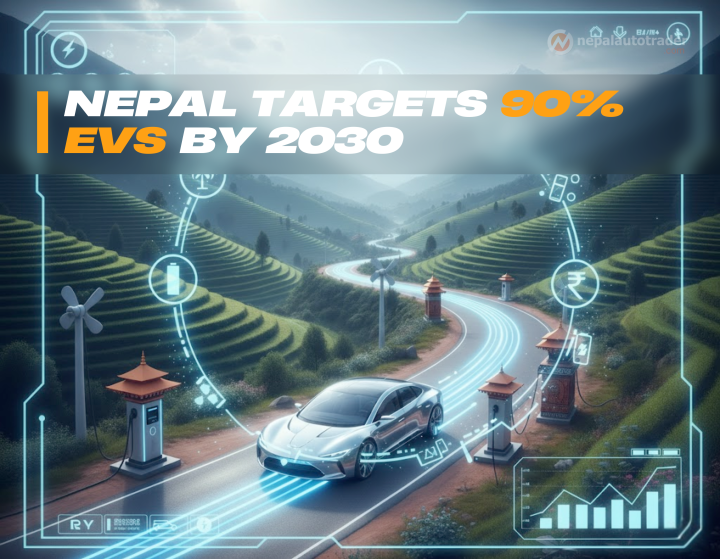
Nepal is rapidly shifting to electric mobility with strong policy backing
Hydropower abundance makes EV adoption cleaner and cheaper
Import duty cuts and past financing support pushed EVs into the mainstream
EVs accounted for 73 percent of passenger vehicle imports in FY 2024 25
Charging infrastructure growth and startup involvement fueling expansion
Key challenges include inconsistent policy and slow public transport electrification
Nepal is in the middle of an EV awakening and the timing could not be better. With hydropower lighting up the grid and government incentives nudging people toward electric mobility, the country is gearing up for a clean transport future. We walk you through the most exciting opportunities that make EVs more than just a trend in Nepal.
Nepal produces the bulk of its electricity from hydropower which means charging an EV is both cleaner and cheaper. Since most of this energy is generated locally the country can dodge the wild price swings of global oil markets. More EVs also help increase internal electricity consumption which boosts the economic value of hydropower investments.
EV adoption has skyrocketed. In the latest fiscal year EVs made up nearly three quarters of all four wheeler passenger vehicle imports. Despite changes in bank financing and shifting tax rules the interest in EVs has stayed strong. People understand that lower running costs and fewer maintenance headaches make EVs a smart choice.
Lower import taxes and earlier high bank financing limits helped EVs gain a foothold. Import duties on chargers and infrastructure were also slashed making it easier for businesses to build charging stations. Even with some recent policy pullbacks the foundation for mass EV adoption has already been laid.
Nepal is steadily growing its public charging network. More than 400 chargers are already active and plans exist to expand to over 400 highway sites. Private companies and EV startups are also stepping in with fast charging hubs that combine smart power management and solar support. This kind of network growth reduces range anxiety and boosts confidence for long trips.
EVs help Nepal reduce its heavy reliance on imported fossil fuels. Every shift from petrol to hydropower powered mobility keeps more foreign currency inside the country. With fewer moving parts EVs also cost less to operate and maintain which helps both families and businesses save money.
More EVs on the road mean cleaner air especially in dense cities like Kathmandu. Quieter streets reduce noise pollution and the absence of tailpipe emissions creates healthier urban environments. The environmental benefits stack up quickly every time someone switches from petrol to electric.
EV growth has unlocked fresh opportunities for local startups. Companies are launching charging hubs battery services and digital EV tools. These new ventures help strengthen the overall ecosystem and create jobs in areas like engineering software energy services and mobility planning.
Nepal still faces roadblocks. Policy inconsistency is the biggest concern. Financing rules have tightened and some tax benefits have been rolled back. Charging networks are growing but not evenly and long distance routes still need reliable fast chargers. Electric buses remain expensive so public transport electrification is slower than ideal.
To fully tap into the potential Nepal should
Keep policies stable to support long term planning
Restore or redesign incentives that make EVs affordable
Speed up highway fast charging infrastructure
Support electric buses and commercial vehicles
Develop local EV assembly battery recycling and skilled workforce
These steps would help Nepal stay on track to hit the national target of high EV penetration by 2030 and reduce dependence on fossil fuels.
Nepal has a real chance to become one of South Asia’s strongest EV success stories. With hydropower on its side and growing consumer demand the country is perfectly positioned to lead a green transport shift. Continued investment stable policies and strong infrastructure will decide how fast Nepal moves toward a cleaner smarter mobility future.
We are excited to see Nepal plug in charge up and race confidently toward its electric tomorrow.